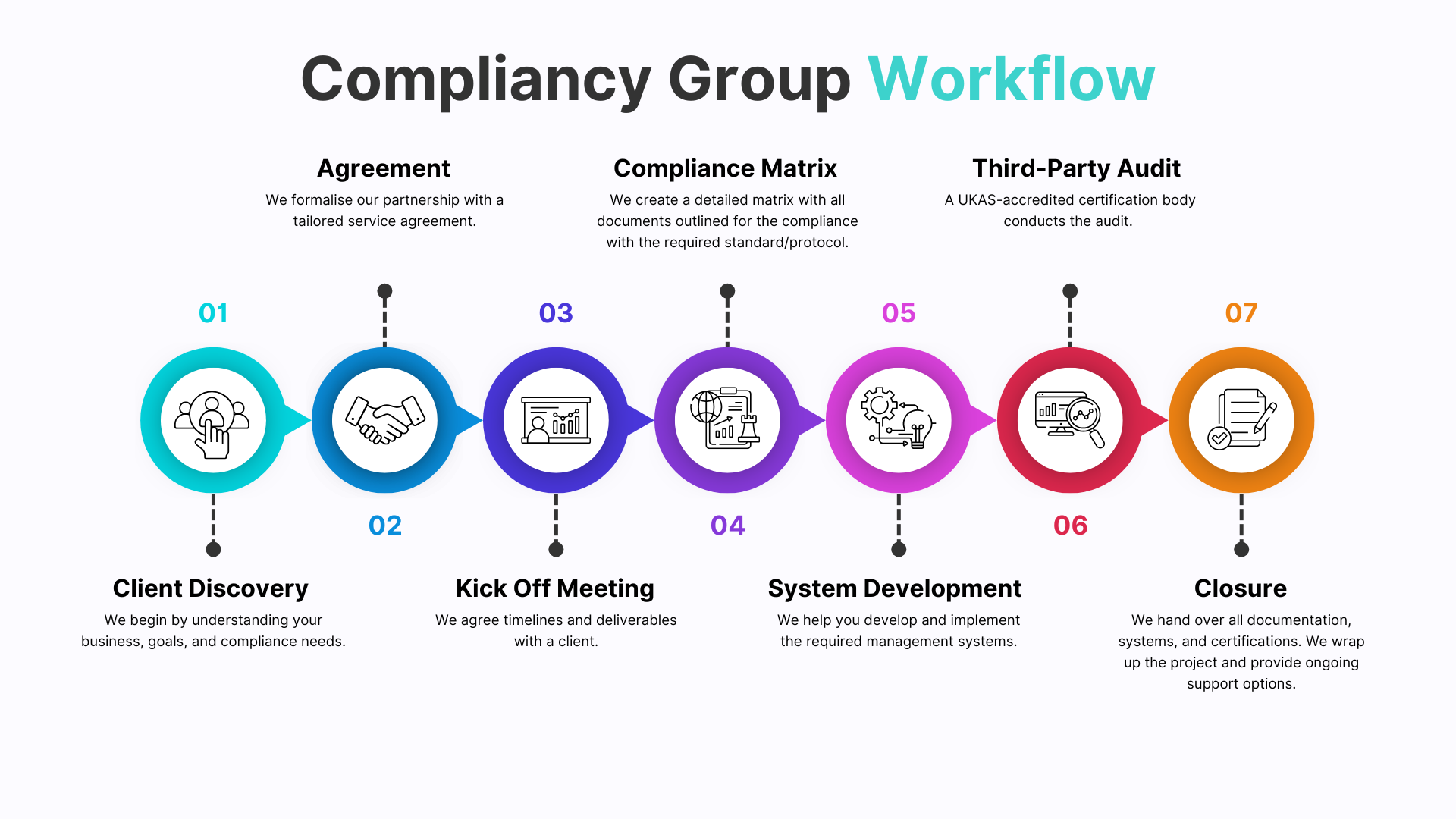We're Here To
Help
A Hygiene Inspection is a comprehensive review designed to assess the cleanliness, sanitation, and food safety standards within your organisation. Completing a hygiene inspection demonstrates your business’s commitment to protecting public health, meeting legal requirements, and maintaining high standards – trusted by clients, partners, and regulators across the food, hospitality, and healthcare sectors. With robust hygiene management, you reduce the risk of contamination, avoid costly non-compliance, and build a reputation for excellence. Compliancy Group guides you through every step – making hygiene compliance clear, practical, and a genuine business advantage.
We understand the complexities of hygiene regulations and industry expectations. Our team brings hands-on experience with hygiene inspections, cleaning protocols, and sector-specific best practices.
No one-size-fits-all here. Whether you need an initial inspection, cleaning plan development, ongoing monitoring, or compliance advice, our services are fully customised to your operations. We offer flexible support packages—from essential guidance to comprehensive on-site consultancy.
We work exclusively with UKAS-accredited certification bodies and maintain a 100% pass rate for compliance assessments. Our clients trust us to deliver results that stand up to audit and regulatory scrutiny—helping you achieve, maintain, and leverage hygiene compliance for business growth.
Compliance shouldn’t slow you down. We help you build safer, cleaner environments, reduce risk, and improve operational efficiency—so you can focus on your core business.
You’ll work directly with our expert team, including leadership involvement from our CEO. We pride ourselves on responsive communication, clear guidance, and ongoing support throughout your compliance journey.
Demonstrate compliance to secure contracts and reassure clients and regulators.
Show your commitment to hygiene, safety, and legal responsibilities.
Minimise the risk of contamination, illness, and costly liabilities.
Enhance your standing as a responsible and trusted organisation.
Regular inspections and compliance checks foster a culture of ongoing cleanliness and operational excellence.
Strengthen Reputation
From initial inspection to ongoing support, our team ensures you’re always prepared and confident.
We streamline compliance processes, freeing up your team to focus on core business activities.
Services are tailored to your specific business needs, not generic templates.
Ongoing support, training, and regulatory updates keep your business compliant long after inspection.
Our 100% compliance pass rate and exclusive partnerships with UKAS-accredited bodies mean you’re in safe hands.

The frequency depends on risk: high-risk premises may be inspected at least every six months, while low-risk ones may only be inspected every five years.
Yes, you can request an inspection or a re-rating visit after making improvements, even if one isn’t scheduled by your local authority.
Complete a certified food hygiene training course and pass the assessment. Level 2 is the most common for food handlers, and reputable online providers are available.
No, it’s a criminal offence to refuse entry to an authorised officer or to provide misleading information or insufficient assistance.
Yes, inspections are generally unannounced and take place while your business is operating.
There’s no legal requirement for formal training or a certificate, but you must have the necessary food safety skills, which can be gained through training, self-study, or experience.
Certificates don’t technically expire, but renewing every three years is best practice due to changing legislation and guidance. Employers may set their own renewal requirements.
Inspection frequency is based on risk—high-risk premises are visited more often, with intervals ranging from 6 months to 5 years.
1.Food handling and storage practices 2.Condition and cleanliness of the building 3.Food safety management systems and records